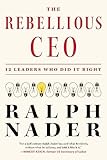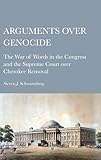“We Tamils, inside and outside the island of Sri Lanka, still want an independent state. And because the war crimes and severe brutality of the Mahinda Rajapaksa government against our people has become well known, our cause is being spoken about all over the world,” Visuvanathan Rudrakumaran told me recently in Manhattan, New York.
A positive sign of recognition for Tamil rights is the dramatic Channel 4 UK documentary, Sri Lanka Killing Fields, shown first at a June Human Rights Council session and then worldwide.
Rudrakumaran is Prime Minister of the Transnational Government of Tamil Eelam (TGTE), and a prominent activist in the Diaspora. He earned law degrees from the University of Colombo and Southern Methodist University. He later studied and wrote articles about self-determination at Harvard Law School
Upon the end of the long civil war in Sri Lanka, May 2009, Rudrakumaran saw the need for international representation of Tamils’ right to sovereignty. He and other Tamil professionals held meetings in Malaysia and Switzerland to initiate the TGTE on the basis of nationhood, a homeland and the right to self-determination.
As these Tamil leaders in exile were gathering forces, they were surprised and disconcerted that Cuba and other new progressive governments in Latin America sided with Sri Lanka at the May 2009 sessions of the Human Rights Council, and not only against the guerrilla movement but also against the Tamil population interests
“Tamils always looked upon Fidel and Che as heroes,” the PM said. “Our people are shocked by Cuba’s position since May 2009. Perhaps it is due to poor communication. We want to send a delegation to Cuba, to Venezuela and other ALBA [Bolivarian Alliance of the Peoples of Latin America] governments to explain our position and to engage in dialogue.”
PM Rudrakumaran maintains that his Transnational Government is not tied to any government or international power. “We are not at the mercy of any power, but will accept support for our cause from whoever cooperates with us.”
The TGTE stresses democratic forms of decision making. In the spring of 2010, elections for delegates to the TGTE were held in 12 countries. In some cases, the proposed candidate met no competition and so there was no election. Tens of thousands participated.
Fifty-six elected delegates gathered in Philadelphia, Pennsylvania (USA) to officially form the Transnational Constituent Assembly on May 17-19, 2010. Thirty more delegates participated via video conference from London and Geneva. On November 3, the TGTE announced its first cabinet. Of the 10 ministers and 10 deputy ministers, five are women.
The TGTE is not to be confused with a “government in exile”, as there had been no independent state with a government that later sought relocation. It is a transnational government in transition and campaigns for nationhood through diplomacy and education. The real government will be established in the homeland when that is physically possible.
TGTE strategy is to work with all existing local, national and international Tamil organizations in the Diaspora, and to create a power centre for diplomacy with all governments possible. It also seeks to work in partnership with Tamil leadership inside Sri Lanka but has not been able to establish ties, at least not officially, given the belligerent nature of the S.L. government.
Getting to this point started following independence from Britain, in 1947-8. “Our people were conservative in many ways,” PM Rudrakumaran explained.
“We were nationalistic, not revolutionary. We had castes and women were not treated equally. We sought equal rights with the majority Sinhalese by using peaceful, non-violent means. But the Sinhalese governments and racist monks and other extremists beat and killed us. They conducted several pogroms in which thousands of Tamils were killed in terrible ways.
“Finally, in 1976, all the Tamil political parties in and out of parliament, from conservative to the most radical and revolutionary decided to struggle for an independent nation in the North East homeland,” Rudra, as he is known, continued.
“When the liberation struggle took up arms, all the barriers were broken. In fact, women played an important role in the armed struggle.
“The Tigers [Liberation Tigers of Tamil Eelam] gave us the dignity and strength to fight. Today, however, the struggle is on the diplomatic plane. We look forward. We are not mired in the past or in speculation about whether the Tigers committed terrorism.”
- TGTE Guiding Principles
1. Commitment to achieve Eelam, an independent, sovereign State—nationhood, homeland and right to self-determination.
2. Tamil Eelam will be a secular state.
3. TGTE shall assist in establishing health facilities in the homeland, homes and refuges for those affected by the war; promote cultural activities stressing Eelam Tamil distinctiveness. Much of this work will have to be done indirectly as the TGTE cannot be in Sri Lanka.
4. Promote education in the homeland.
5. Promote economic welfare.
6. Conduct foreign relations through lobbying.
7. Seek prosecution of war crimes, crimes against humanity and genocide.
8. Protect the equality of women and all Tamils.
9. Provide welfare of families of martyrs, former combatants and families affected by the war. One practical project is to establish monuments for martyrs in the Diaspora since their memorials and graves have been destroyed by the Sri Lankan government.
PM Rudrakumaran said that the TGTE has good relations with the two other international organizations fighting for Tamil sovereignty: Global Tamil Eelam and the Council of Eelam Tamil in Europe.
“We all agree to the same goals and our means are the same—not armed struggle but peaceful protests and diplomacy. We are different in that the TGTE has elected representation in the form of a transnational government, a rather special breed of government,” Rudra said.
“We are encouraged about our future prospects. We see it favorable for us that a referendum was held for South Sudan [in 2005], in which 98.3% voted for secession. The TGTE attended the inauguration ceremony in Juba, July 10, as government guests of the new nation.”
TGTE deputy foreign minister Kanaganthram Manickavasagar and PM spokesperson Jeyaprakash Jeyalingam were among the guests when Salva Kiir signed the new constitution and was sworn in as president.
World leaders were present, including Sudan President Omar al-Bashir and UN secretary general Ban Ki-Moon. Sri Lanka sent a minor envoy, Tissa Vitharana, senior minister of scientific affairs.
Prime Minister Rudrakumaran’s message to the newest nation, number 193 recognized by the UN, read: “We salute [you] for [your] sacrifices to become free and admire [your] courage and determination.”
“Our strategy is similar to that of the Republic of South Sudan,” the PM said. “We want the international community to press for and supervise a referendum on Eelam as occurred in South Sudan. Our peoples have undergone similar fates: genocide, followed by struggles for independence met by war crimes and crimes against humanity.”
Tamil guerrillas had called for ceasefires and a peace deal leading to a referendum for independence. Finally, in 2001, a ceasefire was achieved but only after the guerrillas had decimated much of Sri Lanka’s military might. However, when Mahinda Rajapaksa won the presidency, in 2004, he established a family fiefdom bent on annihilating all Tamil opposition. He smashed the ceasefire and took warring advice and technical-surveillance aid from the US Bush regime; massive weapons, communication infrastructure, boats and fighter aircraft from China; fighter aircraft, intelligence agents and technology from Israel; boats, missiles and moneys from India; moneys for oil and weapons from Iran; weapons from Pakistan; arms and patrol boats from UK and France; and technology and loans from Japan.
Rudrakumaran has no illusions about the interests of major governments representing former and current colonialists and empires. “How does one play the game and not allow a big power to decide? Our skills and our dedication to our united goal of sovereignty determine how we act. We won’t compromise sovereignty. Ours is a struggle for nationality and not one based on ideological or economic grounds.”
Rudrakumaran hopes that India will change its pro-Sri Lanka attitude towards one of support for Tamils. He sees the geo-political wind turning toward both China and India’s interests. As China’s influence grows in Sri Lanka, India is confused about how to act. He does not believe that India is currently acting in its long term interests by sidling up to the Rajapaksa government and thinks that India will soon realize that.
The Tamil leader is also encouraged by recent developments in the 18th session of the Human Rights Council just completed (September 12-30). It appears that the report by an expert panel appointed by UN Secretary-General Ban Ki-moon on “accountability in Sri Lanka” now has a chance to be discussed by the HRC at its 19th session. At least that is proposed by Ki-moon and the High Commissioner for Human Rights, Navi Pillay.
The report was delivered last March and is quite critical of the Sri Lanka government for possible human rights abuse of Tamil civilians and combatants in the last months of the war, which ended May 2009. The report calls for an independent investigation into credible allegations of war crimes and crimes against humanity.
In this HRC session, unlike in that of other sessions, neither India nor any of the Latin American countries expressed verbal approval of the Sri Lanka government when it denied any wrong doing.
See TGTE’s website: http://govtamileelam.org/gov/.










